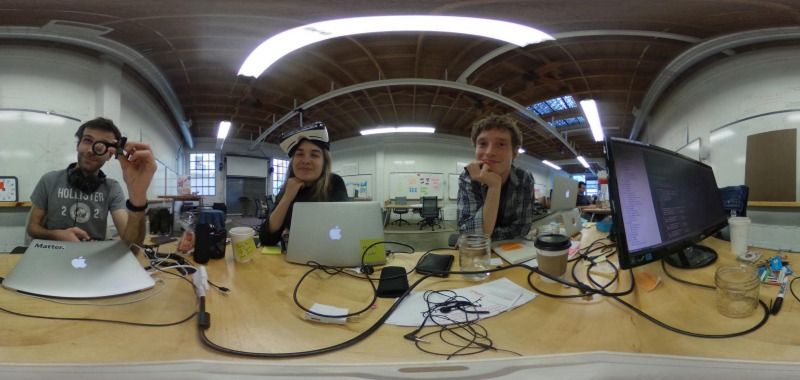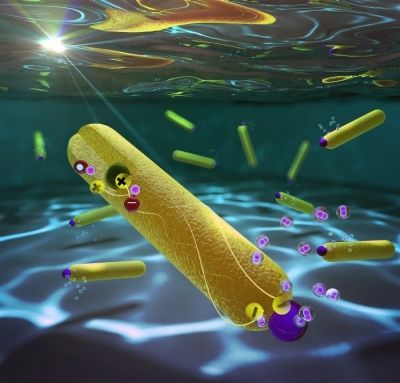Page 11349
Feb 22, 2016
Facebook Impacts Brain Similar To Cocaine, Gambling
Posted by Karen Hurst in category: neuroscience
I knew it! Now, we have proof; FB is addicting like cocaine.
Facebook impacts the brain in a similar way to cocaine, gambling and other substance and compulsive addictions, says a new study.
Continue reading “Facebook Impacts Brain Similar To Cocaine, Gambling” »
Feb 22, 2016
Mark Zuckerberg Offers These Predictions for the Future of the Internet
Posted by Shailesh Prasad in categories: drones, internet, military, solar power, sustainability, transportation
On Monday at the Mobile World Congress in Barcelona, Mark Zuckerberg partook in what he thought would be a “fireside chat” with Wired’s Jessi Hempel but which was verifiably not fireside, and was, actually, a keynote.
Inverse picked out the best nine moments of this interview.
1.) Zuck doesn’t know that Aquila will meet regulations but is just confident that it’ll work out
Continue reading “Mark Zuckerberg Offers These Predictions for the Future of the Internet” »
Feb 22, 2016
Welcome to the age of user-generated virtual reality & 360 video
Posted by Shailesh Prasad in categories: futurism, virtual reality
Yesterday LG and Samsung, two of the world’s largest consumer technology companies, announced the release of consumer-priced 360 cameras that will make it possible for millions of people to create their own virtual reality & 360 videos. Ceci Mourkogiannis, a co-founder of Metta — the first video platform dedicated to user-generated 360 & VR content — looks back to a time just a few months ago when the options for creating 360 videos were limited, and ponders the future of user-generated 360 video in 2016.
Feb 22, 2016
Swiss Startups Delving Into Virtual Reality
Posted by Shailesh Prasad in categories: neuroscience, virtual reality
On the heels of the MindMaze round of $100 million, it is clear that Swiss tech is booming and beginning to tickle the curiosity of international investors.
The startup had already closed an angel funding round of $10 million and recently announced the opening of their Series A round at a $1 billion valuation. The lead investor is multinational conglomerate Hinduja Group, with participation from family offices that haven’t been disclosed yet.
MindMaze is a neuro-rehabilitation platform that helps stroke victims to recover faster by “fooling” the brain through VR/AR technology.
Continue reading “Swiss Startups Delving Into Virtual Reality” »
Feb 22, 2016
Facebook wants to help internet providers get ready for virtual reality
Posted by Shailesh Prasad in categories: engineering, internet, virtual reality
Facebook today announced the launch of the Telecom Infra Project (TIP), which is bringing together a coalition of internet service providers and tech companies to focus on the engineering challenges of delivering high-res video and virtual reality. The group has 30 initial members including T-Mobile, Nokia, Intel, Deutsche Telekom, and SK Telecom. The approach is modeled after the Open Compute Project, which was started by Facebook in 2011 to share designs of data-center products, and has ties to Facebook’s Internet.org initiative to bring connectivity to rural areas and developing countries.
“Every day, more people and more devices around the world are coming online, and it’s becoming easier to share data-intensive experiences like video and virtual reality,” Jay Parikh, Facebook’s global head of engineering and infrastructure, writes in a blog post. “Scaling traditional telecom infrastructure to meet this global data challenge is not moving as fast as people need it to.”
The TIP’s technology companies and hardware makers will work together to contribute designs for products like wireless radios and optical fiber gear to better manage, store, and deliver intensive data, while telecoms can then use those designs in practice. “This will result in significant gains in cost and operational efficiency for both rural and urban deployments,” Parikh adds. The group will also work toward accelerating the development of 5G networks.
Continue reading “Facebook wants to help internet providers get ready for virtual reality” »
Feb 22, 2016
Till the last screw: Robots clash in Moscow arena (VIDEO)
Posted by Dan Kummer in categories: futurism, robotics/AI

The clang of metal, breathtaking speed and tons of adrenaline! Watch a futuristic video of battle robots in ultimate fighting in Moscow. The iron warriors are clashing without mercy for the right to face foreign competitors.
The Russian capital is holding an international competition ‘Bronebot-2016’ for battle robots, February 21–23. “Attention! The show contains scenes of total robot carnage,” the banner reads.
Feb 22, 2016
Hybrid Technology Converts Sugar into Nylon
Posted by Karen Hurst in categories: engineering, genetics
Now we can turn sugar into Nylon.
Genetically engineered yeast plus electro-catalyst yields bio-based nylon.
Feb 22, 2016
Etch transfer into silicon of patterns with a half-pitch of under 20nm
Posted by Karen Hurst in category: futurism
An etching process based on a three-layer stack achieves transfer into silicon of patterns with a depth of less than 5nm and a half-pitch of less than 20nm written by thermal scanning probe lithography.
Feb 22, 2016
Nanoscale system reaches perfect efficiency for solar fuel production step
Posted by Karen Hurst in categories: energy, materials, nanotechnology, sustainability
A major goal in renewable energy research is to harvest the energy of the sun to convert water into hydrogen gas, a storable fuel. Now, with a nanoparticle-based system, researchers have set a record for one of the half-reactions in this process, reporting 100% efficiency for the reduction of water to hydrogen (Nano Lett. 2016, DOI: 10.1021/acs.nanolett.5b04813).
To make such water-splitting systems, researchers must find the right materials to absorb light and catalyze the splitting of water into hydrogen and oxygen. The two half-reactions in this process—the reduction of water to hydrogen gas, and the oxidation of water to oxygen gas—must be isolated from each other so their products don’t react and explode. “Completing the cycle in an efficient, stable, safe fashion with earth-abundant elements is an ongoing challenge,” says chemist Nathan S. Lewis of Caltech, who was not involved in this study.
Until recently, the efficiency of the reduction step had maxed out at 60%. One challenge is that electrons and positive charges formed in the light absorption process can rapidly recombine, preventing the electrons from reducing water molecules to form hydrogen. To overcome this problem, several years ago, Lilac Amirav of Technion–Israel Institute of Technology and her colleagues designed a nanoparticle-based system (J. Phys. Chem. Lett. 2010, DOI: 10.1021/jz100075c) that would physically separate the charges formed during photocatalysis.
Continue reading “Nanoscale system reaches perfect efficiency for solar fuel production step” »














